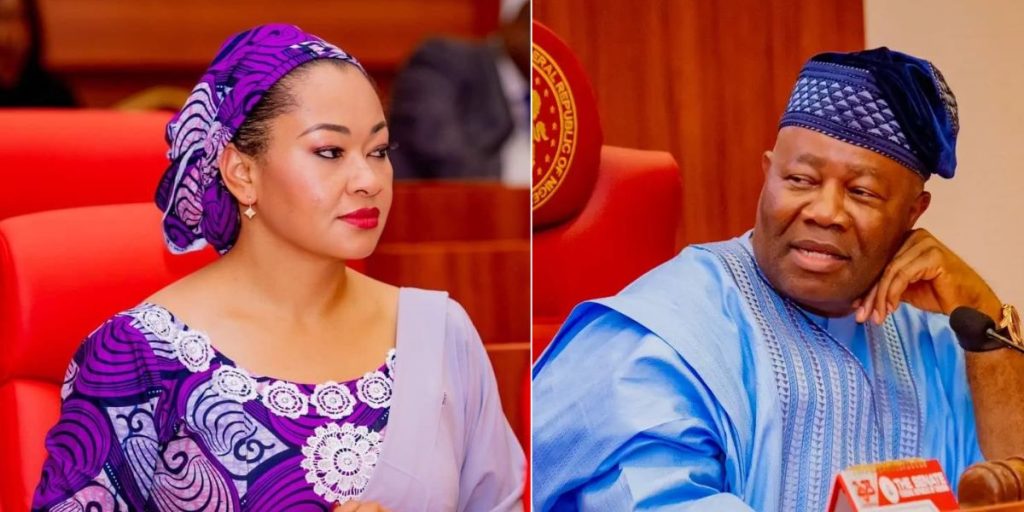The political landscape of Nigeria witnessed a dramatic clash between Senate President Godswill Akpabio and suspended Senator Natasha Akpoti-Uduaghan, stemming from allegations of sexual harassment. The conflict escalated following a “satirical apology” video posted by Akpoti-Uduaghan on her Facebook account, which Akpabio interpreted as a violation of a court order. This triggered a legal battle, with Akpabio demanding a retraction and apology, while Akpoti-Uduaghan defended her post as protected speech under the Nigerian constitution.
The controversy began when Akpoti-Uduaghan accused Akpabio of sexual harassment. Akpabio subsequently filed a lawsuit, and the court issued an order restraining Akpoti-Uduaghan from publicly discussing the matter. In response, Akpoti-Uduaghan posted a video in which she seemingly apologized to Akpabio, but the tone was widely perceived as sarcastic and mocking. She expressed regret for “maintaining dignity and self-respect” and for rejecting Akpabio’s advances, implying that he was accustomed to unquestioning compliance.
Akpabio’s legal team, led by Kehinde Ogunwumiju, SAN, swiftly filed a fresh application arguing that the video constituted a violation of the court order. They demanded that Akpoti-Uduaghan delete the video from all her social media platforms and issue a genuine apology. This move amplified the public attention on the case, turning it into a highly publicized dispute between two prominent political figures. The legal wrangling raised questions about the balance between freedom of expression and the authority of court orders.
Akpoti-Uduaghan countered Akpabio’s application by filing a counter-affidavit, asserting that her video did not violate the court’s gag order. She argued that the video, titled “Satirical Apology Letter,” did not explicitly mention the legal proceedings or any matter under judicial consideration (sub judice). Instead, she characterized it as political satire targeting patriarchal norms within the legislature, invoking Section 39(1) of the Nigerian constitution, which guarantees freedom of expression. Furthermore, she denied any intention to prejudice the proceedings and challenged Akpabio’s team to provide evidence of such prejudice.
The situation became more complex with Akpoti-Uduaghan accusing Akpabio’s lawyer, Monday Ubani, SAN, of publicly commenting on the proceedings and vilifying her on Facebook. She contended that Akpabio’s motion was motivated by malice and intended to harass and intimidate her for exercising her constitutional rights to a fair hearing and free expression. This counter-accusation further fueled the public debate surrounding the case, highlighting the potential for social media to influence and complicate legal battles.
The clash between Akpoti-Uduaghan and Akpabio represents more than just a personal dispute. It has brought into sharp focus the ongoing tension between freedom of speech and the power of legal injunctions, especially in the digital age. The use of satire as a form of political commentary further complicates the legal interpretation, raising questions about the boundaries of protected speech. The case also underscores the growing influence of social media in shaping public perception of legal proceedings and potentially exerting pressure on the judiciary.














